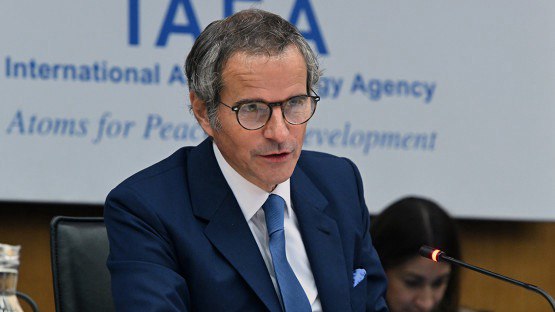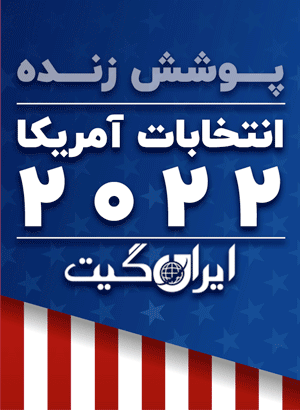The atomic alert sounded in Vienna
Iran’s enriched uranium stockpiles continue to increase
The atomic alert sounded in Vienna as the International Atomic Energy Agency’s quarterly meeting began on March 4 in the Austrian capital. Rafael Grossi, the agency’s director general, announced the increase in enriched uranium stockpiles and criticized Tehran’s approach to reducing cooperation with the agency. Grossi stated in his report to the agency’s Board of Governors that Iran’s enriched uranium stockpiles are still increasing, although the rate of uranium enrichment with a 60% concentration has decreased.
Previously, the Board of Governors had requested Iran to cooperate with the International Atomic Energy Agency in investigating uranium particles found at undisclosed sites and demanded immediate and necessary explanations from Iran. Since then, although the number of undisclosed sites under scrutiny has decreased from three to two, the list of issues between the agency and Iran has increased. Iran has failed to fully agree to reinstall the agency’s cameras at some sites and prevented entry of some of the agency’s most experienced inspectors in September.
Rafael Grossi, the Director-General, said, ‘I deeply regret that Iran has not changed its decision to prevent experienced and specialized Agency inspectors from entering. In his report, he mentioned that after three years of Tehran’s decision to stop implementing the Additional Protocol, no progress has been made in resolving the remaining issues.’
The Iranian government has not provided valid technical explanations regarding the presence of human-origin uranium particles in Varamein and Turquzabad to the Agency, and the Agency is still unaware of the current locations of nuclear materials or contaminated equipment. Tehran has also halted the Agency’s access to surveillance camera data at nuclear sites and the issuance of permits for some inspectors.
The United States has asked Iran to dilute all uranium close to weapons-grade. It is unclear why Iran reduced these materials, as it always denies seeking to build nuclear weapons and claims to have the right to enrich to high levels for non-military purposes. Western powers say there is no non-military justification for enrichment at such high levels.
The United States, in a statement on Thursday, condemned many of Tehran’s recent nuclear activities and asked Iran to dilute all enriched uranium up to 60% and expressed serious concerns about Iran’s continued pursuit of enriched uranium reserves.
The International Atomic Energy Agency had announced on the fifth of Dey that Iran currently has enough 60% enriched uranium, which is sufficient for making three atomic bombs, by increasing the speed of uranium enrichment at high levels.
In a statement regarding Iran at the quarterly meeting of the Board of Governors of the International Atomic Energy Agency, consisting of 35 countries, the United States said that Iran must reduce all of its 60% enriched stocks, not just part of it, and must completely stop all production of enriched uranium up to 60%. The statement added that no other country produces enriched uranium up to 60% for the purposes claimed by Iran today, and Iran’s actions are contrary to the behavior of all other non-nuclear-weapon states party to the NPT, the Treaty on the Non-Proliferation of Nuclear Weapons.
The United States has condemned various actions of Iran, and the International Atomic Energy Agency has also criticized many of them, such as obstructing the presence of some of the most experienced and expert inspectors of the agency in the past year.
Western self-restraint in confronting Iran at the agency meeting.
However, Reuters reported on March 4, citing Western diplomats who requested anonymity, that due to the Middle East conflicts, the United States does not want to escalate diplomatic tensions with Tehran by approving another resolution against the Iranian government in the Council.
Diplomats stated that approving a resolution could send the wrong message, leading to dangerous miscalculations. They added that the region is in an unstable situation without a ceasefire or a solution for Gaza, without prospects for a nuclear agreement, and with the upcoming U.S. presidential elections.
Diplomats told Reuters that three European countries, France, England, and Germany, have prepared a draft resolution in coordination with the United States and are pushing for its approval. The sources added that Washington is opposed to Iran’s nuclear program with a tough stance, although Iranian government officials have repeatedly claimed that the country’s nuclear program is peaceful and not aimed at acquiring nuclear weapons.
Rafael Grossi had previously warned that Iran’s enriched uranium reserves are 27 times higher than the limit set in the nuclear agreement with the global powers known as the Joint Comprehensive Plan of Action (JCPOA). He emphasized that addressing all these concerns can only be done through constructive and meaningful interaction, and once again called on Iran to fully and unambiguously cooperate with the agency.
Diplomats have stated that the United States does not want to escalate diplomatic tensions with Iran by pressuring Tehran with issuing a resolution against it at the International Atomic Energy Agency in response to Israel’s continued military attacks on Gaza following the October 7 attacks by Hamas and the escalation of tensions throughout the Middle East. In fact, any action or operation that could lead to sending wrong signals and subsequently miscalculations is very dangerous.
However, diplomats have said that Washington has been opposing any solution against Iran for months, which could partly be due to the upcoming presidential elections in November.
The United States has stated that Iran must cooperate with the agency, including providing access for environmental sample collection to the agency, and it must start doing this now.
Meanwhile, if Iran fails to do so, the United States wants the Agency’s Director-General, Rafael Grossi, to provide a comprehensive report on Iran’s nuclear activities that goes far beyond his regular quarterly reports.
The United States and three other European powers strongly criticized Iran for issues including its increasing enriched uranium stockpiles, which, if further enriched, would be enough for several nuclear bombs. Iran, as it has claimed in the past and throughout all these years, denied having any intention of pursuing such a goal.
Persian
مشاهده این مقاله به زبان فارسی


